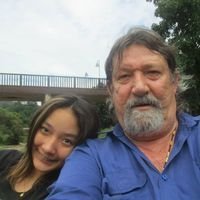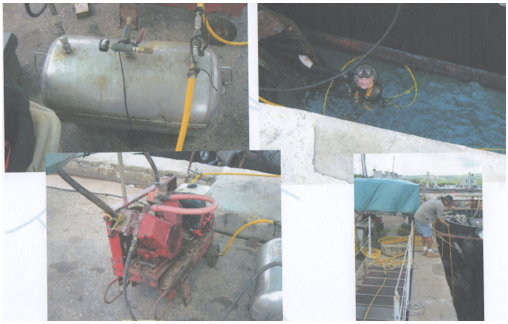Article written by Michael Shord. Area Representative - Australia
For those budding Australian Supervisors who took their ADAS diving regulations examination paper last year, you would have said that NOPSA was the organization that Diving companies and Divers had to answer to with regards to standards within Australia. Today, you would have your paper marked wrong if you answered NOPSA. These days NOPSA (National Offshore Petroleum Safety Authority) is known as NOPSEMA ( National Offshore Petroleum Safety and Environmental Management Authority). With their new title came the loss of the control with regards to a lot of commercial diving within Western Australia. Here was a Federal government department, with qualified Divers who are also OHS specialist, trying to make sure all diving was carried out safely, suddenly finding their claws removed and not knowing the reason why.
2012: Australia :- 1 Diver died, number of Bends : unknown
Worldwide:- 19 known deaths, number of bends : unknown
Here in Western Australia the responsibility for all onshore diving, (‘onshore’ being as far out to sea as the 8 km mark), now comes under the control of Worksafe. Unfortunately, the Worksafe Inspectors were not informed that this was the case. At the meeting with Worksafe that I had on behalf of the Divers Association International, I discovered that they don’t actually have any inspectors that are qualified to make judgement with regards to diving operations and safety. “Experts†are brought in whenever Worksafe is required to make any diving related judgements. Diving companies and divers are left to “self- regulate†on any safety requirements. So basically Worksafe’s only involvement with regards to diving safety is after the event rather than prevention of anyone being hurt or killed. It is Worksafe’s strong belief that the diving industry is self-regulating.
2011: Australia :- 1 Diver died, number of bends : At least 3
Worldwide:- 68 known deaths, number of bends ; unknown
Do we really want Dive Sites like this?
Photos courtesy of Nigel Lusby
Having been to meetings with NOPSEMA and Worksafe, I came away feeling that either no one cared about safety within the Diving industry or, those that do care are powerless to act.
My next port of call was with the MUA (Maritime Union of Australia). I’ll just take this moment to remind Australians and our visiting Kiwis, that, due to the input of the MUA, a lot of the safety issues within the Australian diving community were introduced and implemented back in the late eighties and early nineties. My purpose of going to the MUA was to introduced myself as the representative of the Divers Association International. I explained the purpose of the Association and what we hope to achieve. This meeting was I believe, constructive and productive. If the MUA and its divers achieve their vision, it will improve standards within the diving industry right across Australia. As with both the government department, I proposed that the MUA utilised the Divers Association in their efforts to make the safety standards uniform across Australia. I will point out that both the government departments said that even though they agree with what the Divers Association is trying to implement, that they (the departments) could not get involved. It is hoped that the Divers Association will be invited to attend the Diving and Hyperbaric Members conference in Fremantle in July 2012
2010 : Australia :- 0 deaths, number of bends : unknown.
World wide:- 72 deaths, number of bends: unknown
When we look at statistics with regards to Divers’ deaths and bends, it is often overlooked that in the worldwide count, the Australians and Kiwis that have died while working overseas.
Bend numbers are generally unknown because Diving contractors don’t always notify authorities when these occur. With the removal of NOPSEMA from the majority of dive sites in Western Australia, there would appear to be even less reason for the Diving Contractor to report bend cases. The diver is generally treated on site and a few days later carries on working. For those where treatment is not totally successful, the diver is sent home, and in some cases, is forgotten.
In a presentation given by Nigel Lusby, Chairman of OGP Diving operations subcommittee, he states that 19% of diving fatalities worldwide are caused by personnel incompetence, 24% by equipment failure and 20% by failure of the PTW and isolation controls.
Here in Australia, most of the offshore guideline are taken directly from the IMCA rules and regulations. Where a lot of IMCA is recommendations, here in Australia, they have been made law. Which should make it easier to police, but unfortunately that is not the case. We have all the rules and regulations that are needed to make our industry as safe as possible, but it is pointless having these, if Divers / Supervisors / Superintendents / and Diving Contractors don’t bother or fail to implement them. Every diver has the right to stop a job proceeding if he or she believes it unsafe, unfortunately, that itself brings a dilemma. If I complain I won’t have a job / Mind my own business and let someone get hurt. This could be alleviated by using the Divers Association, and its web site to voice your concerns.
Finally, to the diving community worldwide. We work in an unforgiving world. we certainly don’t need incompetence and poor equipment to have to cope with as well. Join the association, voice your opinion, let us know of problems that have taken place at your work site. No names are need, but be factual. The association is your VOICE, use it on behalf of safety, for you, your mate and your family.




Recommended Comments